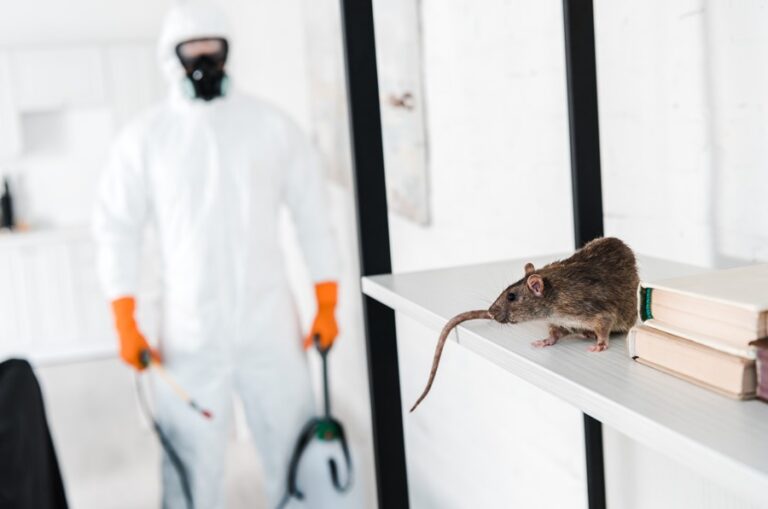Polystyrene Packaging: The Lightweight Champion of Product Protection
Introduction
In today’s fast-paced supply chain, packaging is no longer just about wrapping a product — it’s about protection, efficiency, and cost-effectiveness. One of the most reliable solutions used by businesses across the UK is polystyrene packaging. Known for being lightweight, affordable, and highly versatile, polystyrene offers manufacturers and retailers a smart way to protect products during transit.
Alongside polystyrene, another rising star in protective design is bespoke foam packaging. This approach takes packaging a step further by tailoring foam inserts precisely to the dimensions and fragility of a product, ensuring minimal movement and maximum safety. Together, these two solutions give businesses a wide spectrum of options for product presentation and protection.
In this article, we’ll explore how polystyrene packaging works, why bespoke foam packaging is transforming shipping practices, and the benefits of choosing a trusted UK supplier for both.
Why Polystyrene Packaging Remains Popular
Polystyrene, or EPS (expanded polystyrene), has been a cornerstone of protective packaging for decades — and for good reason.
1. Lightweight but Strong
Polystyrene packaging is made up of 98% air, which makes it incredibly light. Despite its low weight, it provides impressive structural strength, helping products withstand drops, knocks, and stacking during shipping.
2. Affordable and Accessible
As one of the least expensive foam packaging options, EPS keeps costs down for manufacturers and distributors. It requires no complex tooling, meaning businesses can begin production quickly without major upfront investments.
3. Versatile Design Options
Whether you need simple corner protectors, shaped inserts, or box fitments, polystyrene can be cut, shaped, and hot-wire fabricated into countless forms. Suppliers can even provide cartons alongside fitments, ensuring packaging strength matches product requirements.
4. Safety and Reliability
Polystyrene is chemically inert, non-toxic, and rot-proof. For added safety, it can be supplied in flame-retardant grades, making it suitable for industries with stricter compliance standards.
From bulk goods to fragile consumer products, polystyrene packaging delivers consistent protection without driving up costs.
The Rise of Bespoke Foam Packaging
While polystyrene handles many high-volume packaging needs, there are times when businesses require precision — especially when dealing with sensitive or high-value products. That’s where bespoke foam packaging comes in.
Unlike generic inserts, bespoke foam packaging solutions are custom-engineered around the dimensions and characteristics of a specific product. This ensures a snug fit, reduces waste, and provides repeatable performance in every shipment.
Why Bespoke Foam Packaging Matters
- Damage Reduction – Prevents movement inside the box and absorbs impact during handling.
- Efficiency – Designed for quick packing, saving time and labour costs.
- Sustainability – Uses minimal materials while reducing breakage and waste.
- Scalability – Works for both small batches and large-scale distribution.
Whether it’s electronics, medical devices, or luxury goods, bespoke foam inserts provide confidence that products will arrive in perfect condition.
Types of Foam Used in Packaging
When choosing a bespoke solution, businesses aren’t limited to just one material. Packaging specialists offer a wide selection depending on protection needs:
- Nomafoam – Flexible and resilient, ideal for surface and edge protection.
- Polyurethane (PU) – Soft and shock-absorbing, perfect for electronics and delicate instruments.
- Polystyrene (EPS) – Rigid and cost-effective, best for thermal insulation and bulk protection.
- Polyethylene (PE) – Dense, durable, and reusable, excellent for heavy tools and repeat-use transit packaging.
This mix allows suppliers to provide the right balance of protection, cost, and sustainability.
Industries That Benefit Most
Both polystyrene packaging and bespoke foam packaging are widely used across different sectors:
- Electronics & Tech – Anti-static foams and inserts protect devices from static damage and shocks.
- Medical & Pharmaceutical – Secure transport of sterile equipment and fragile medical devices.
- Automotive & Engineering – Heavy-duty packaging for machine parts and kits.
- Aerospace – High-precision foam milling for sensitive aviation components.
- Retail & Luxury Goods – Presentation-ready packaging that enhances unboxing experiences.
- E-Commerce – Cost-efficient protection for consumer shipments at scale.
Whether a company ships weekly or manages thousands of parcels daily, tailored packaging ensures consistent quality and safety.
Benefits of Choosing a Specialist Supplier
Not all packaging providers offer the same level of expertise. Businesses working with an established UK-based supplier like Advanced Protective Packaging enjoy several advantages:
- End-to-End Design Service – From concept sketches to CAD design and prototyping.
- Cost Efficiency – Minimized material usage reduces waste and lowers costs.
- Fast Turnaround – In-house manufacturing ensures quick delivery and repeat ordering.
- Complete Packaging Solutions – Access to not only foam inserts but also cartons, tapes, and bubble wrap.
- Simplified Logistics – Dealing with one supplier reduces paperwork and avoids stock imbalance.
This holistic approach saves businesses both time and money while guaranteeing professional, reliable packaging.
Process: From Idea to Finished Packaging
To give you an idea of how bespoke packaging is developed, here’s a typical journey:
- Consultation – Understanding product dimensions, fragility, and handling requirements.
- Design – CAD software used to create 3D concepts of foam inserts or polystyrene fitments.
- Prototyping – Samples produced for client approval before mass production.
- Manufacturing – Foam cut, shaped, and fabricated in-house with CNC machinery.
- Delivery & Support – Reliable UK-wide shipping with options for repeat orders.
This seamless process ensures packaging not only meets expectations but also exceeds them.
The Benefits of Polystyrene & Foam Packaging Combined
When businesses integrate both polystyrene packaging and bespoke foam packaging, they unlock several advantages:
- Flexibility – EPS for bulk, low-cost protection; foam for delicate, high-value items.
- Consistency – Both options offer repeatable performance shipment after shipment.
- Brand Reputation – Safe, professional packaging reflects positively on the company.
- Sustainability – Reduced product waste means lower environmental impact.
By leveraging the strengths of each solution, companies can protect products effectively while optimising costs.
Conclusion
In an era where customer satisfaction depends heavily on the condition of delivered products, packaging plays a crucial role in business success. Polystyrene packaging continues to be a trusted solution for cost-effective, lightweight protection, while bespoke foam packaging provides the precision and confidence needed for fragile or high-value items.
Together, they form a complete strategy for businesses that value safety, efficiency, and presentation. Whether you’re shipping electronics, medical devices, luxury goods, or industrial components, choosing the right packaging partner ensures your products — and your reputation — arrive intact.
If your business is ready to improve packaging performance and reduce transit risks, now is the time to explore advanced solutions that combine practicality with innovation.






